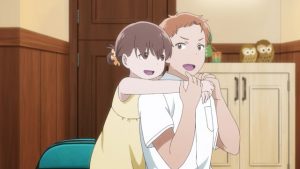 I’m at the point with Hoshiai no Sora now where I reflexively check the slider as soon as the ED starts, and if there’s any extra time left my stomach does a couple of flips. As it turned out this week it was low-key compared to the rest of the episode. I enjoy the way Akane-sensei is presenting the drama here and each of these stories, individually, rings pretty true. Each of them, in a vacuum, touches me emotionally. But put them all together and I admit I’m starting to get a little bit of dysfunction fatigue.
I’m at the point with Hoshiai no Sora now where I reflexively check the slider as soon as the ED starts, and if there’s any extra time left my stomach does a couple of flips. As it turned out this week it was low-key compared to the rest of the episode. I enjoy the way Akane-sensei is presenting the drama here and each of these stories, individually, rings pretty true. Each of them, in a vacuum, touches me emotionally. But put them all together and I admit I’m starting to get a little bit of dysfunction fatigue.
Let’s just review for a second:
- Maki: Abusive alcoholic father who shakes him down for money while his mom pretends everything is OK.
- Touma: Mother hates him for some reason, as yet unconfirmed.
- Yuuta: Struggling with issues of gender identity, which his mother is laying huge guilt vibes on him for.
- Rintarou: Adopted. His parents (mom at least) seem perfectly loving and he seems to love them, but dealing with abandonment issues.
- Itsuki: Horribly burned by his mother as an infant.
- Nao: Mother is an abusive and controlling horror who demeans her son constantly and puts non-step pressure on him to be her perfect robot.
- Shingo: Living with his step-mother, who can’t stand the sight of him (literally). At least his dad seems OK.
- Tsubasa: Father hates him because he was bad at soccer and quit (seriously?). To add injury to insult, he’s also physically abusive.
- Taiyou: Ask not for whom the bell tolls, Child – your time will surely come…
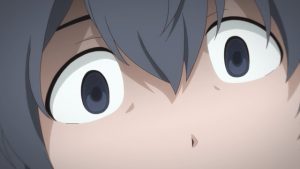 As I said, individually all these dramas are quite realistic. But in the context they’re presented, Hoshiai no Sora seems almost like a survey course in adolescent family dynamics. As I noted last week I think that’s quite intentional on Akane’s part – he had a lot of stories he felt needed to be told, and he’s damn well going to tell them. And I admire that because boys, as a rule, have been badly served by anime. Their problems have been minimized and they’ve generally been presented as bland and generic foils for the girls in the cast or as coarse and dim-witted oafs or horndogs. Bless your heart Akane-san – you’re fighting the good fight.
As I said, individually all these dramas are quite realistic. But in the context they’re presented, Hoshiai no Sora seems almost like a survey course in adolescent family dynamics. As I noted last week I think that’s quite intentional on Akane’s part – he had a lot of stories he felt needed to be told, and he’s damn well going to tell them. And I admire that because boys, as a rule, have been badly served by anime. Their problems have been minimized and they’ve generally been presented as bland and generic foils for the girls in the cast or as coarse and dim-witted oafs or horndogs. Bless your heart Akane-san – you’re fighting the good fight.
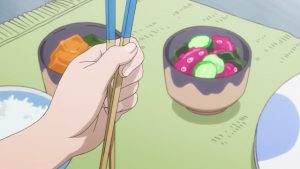 One thing I really like about this series is that it captures the paradoxical nature of boys this age splendidly. The whole “grasshopper” thing couldn’t ring more true, but – and this is what not just anime but adults generally tend to deny – boys feel things just as deeply as girls. They love just as much, they’re afraid just as much, they hurt just as much when adults or other teens hurt them. One problem, of course, is that they’re discouraged from admitting any of that because it isn’t “manly” (as I’m sure Tsubasa could tell you). And if boys can find support from their peers when the adults they depend on let them down, that’s an absolutely wonderful thing. And boys do support each other, don’t kid yourself – in spite of being discouraged from doing so for the same stupid reason.
One thing I really like about this series is that it captures the paradoxical nature of boys this age splendidly. The whole “grasshopper” thing couldn’t ring more true, but – and this is what not just anime but adults generally tend to deny – boys feel things just as deeply as girls. They love just as much, they’re afraid just as much, they hurt just as much when adults or other teens hurt them. One problem, of course, is that they’re discouraged from admitting any of that because it isn’t “manly” (as I’m sure Tsubasa could tell you). And if boys can find support from their peers when the adults they depend on let them down, that’s an absolutely wonderful thing. And boys do support each other, don’t kid yourself – in spite of being discouraged from doing so for the same stupid reason.
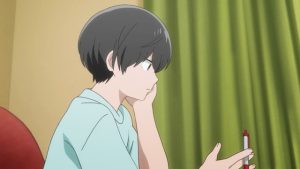 The problem for me comes in when I ask myself whether this works in dramatic terms. In this series’ case the answer is mostly yes, but I think there is an ideal line in narrative terms and it feels to me as we’re starting to cross it. When every episode and every boy is dealing with significant emotional trauma, the show as a whole can start to play as manipulative. I haven’t felt that before this week and by God, I raged on behalf of Shingo, Nao and Tsubasa this week. I don’t have kids but if I were lucky enough to have any of these kids as a son, I’d like to think I’d be the sort of parent that would support and encourage them. But yes – it played as kind of manipulative. And to some extent at least, that’s a legitimate problem.
The problem for me comes in when I ask myself whether this works in dramatic terms. In this series’ case the answer is mostly yes, but I think there is an ideal line in narrative terms and it feels to me as we’re starting to cross it. When every episode and every boy is dealing with significant emotional trauma, the show as a whole can start to play as manipulative. I haven’t felt that before this week and by God, I raged on behalf of Shingo, Nao and Tsubasa this week. I don’t have kids but if I were lucky enough to have any of these kids as a son, I’d like to think I’d be the sort of parent that would support and encourage them. But yes – it played as kind of manipulative. And to some extent at least, that’s a legitimate problem.
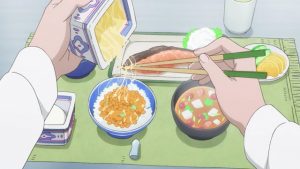 tsirrus noted in the comments last week that this collection of troubled teens may be more realistic than it seems at first flush, because they’re in a club that’s likely to attract misfits. It’s disrespected, unsuccessful and generally not the sort of place a settled or cool boy would want to spend his time or be seen doing so. Indeed I’ve noted that myself, and I think it’s a legitimate point. And these misfit boys (and one misfit girl) becoming each other’s support system is kind of a beautiful thing. That’s why even if I see some narrative awkwardness at this point, on the whole Hoshiai no Sora is still working very well for me.
tsirrus noted in the comments last week that this collection of troubled teens may be more realistic than it seems at first flush, because they’re in a club that’s likely to attract misfits. It’s disrespected, unsuccessful and generally not the sort of place a settled or cool boy would want to spend his time or be seen doing so. Indeed I’ve noted that myself, and I think it’s a legitimate point. And these misfit boys (and one misfit girl) becoming each other’s support system is kind of a beautiful thing. That’s why even if I see some narrative awkwardness at this point, on the whole Hoshiai no Sora is still working very well for me.
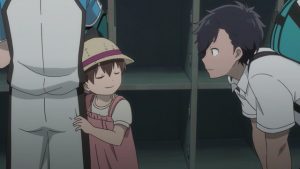 As for the soft tennis club, that’s looking pretty dodgy with only three eps to go. Tsubasa is on the shelf for two months thanks to his abusive father (who he’s lying to protect, naturally) and Nao seems so broken from his mother’s relentless pressure (his story may be the most real and viscerally painful of all) that even if she doesn’t trash the club he’s going to have a hard time making it back. It seems to be falling on Maki, the strongest (as long as his father isn’t around) and most perceptive of the bunch, to try and hold everything together. He seems as odd candidate to be everyone’s catcher in the rye with all he’s been through, but it’s a testament to his character that he’s responded to all that by using his pain to try and assuage the pain of others.
As for the soft tennis club, that’s looking pretty dodgy with only three eps to go. Tsubasa is on the shelf for two months thanks to his abusive father (who he’s lying to protect, naturally) and Nao seems so broken from his mother’s relentless pressure (his story may be the most real and viscerally painful of all) that even if she doesn’t trash the club he’s going to have a hard time making it back. It seems to be falling on Maki, the strongest (as long as his father isn’t around) and most perceptive of the bunch, to try and hold everything together. He seems as odd candidate to be everyone’s catcher in the rye with all he’s been through, but it’s a testament to his character that he’s responded to all that by using his pain to try and assuage the pain of others.


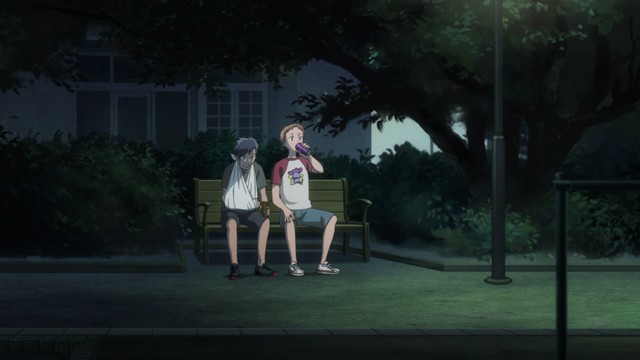
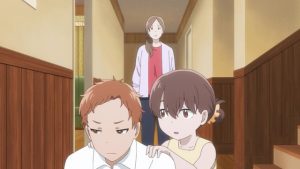
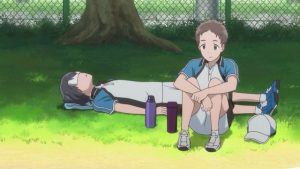
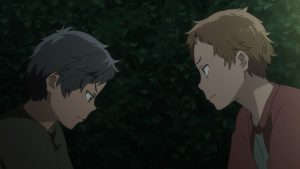
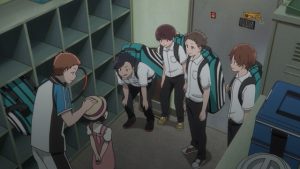
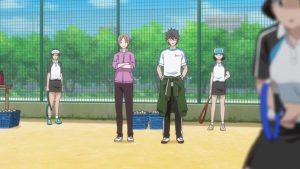
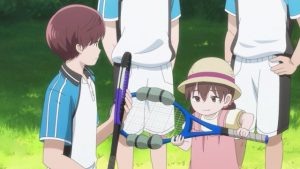
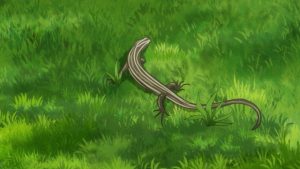
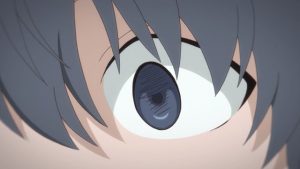
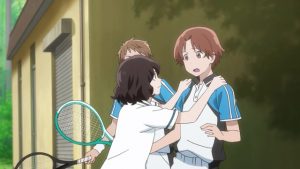
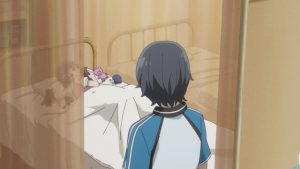
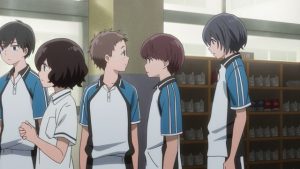
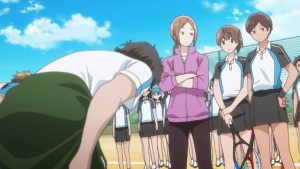
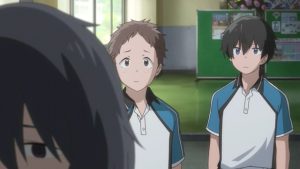
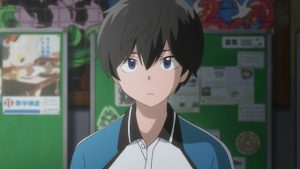
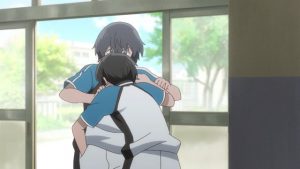
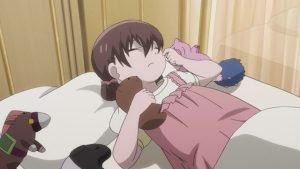
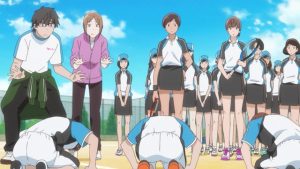
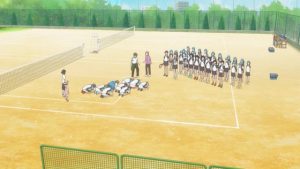
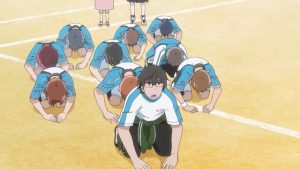
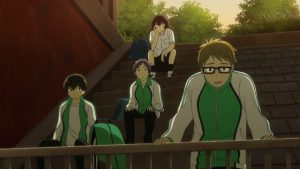
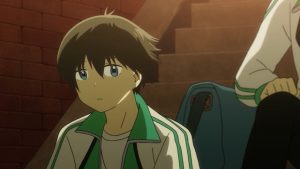
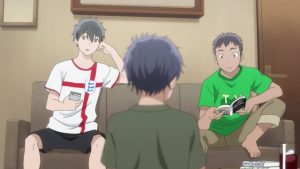
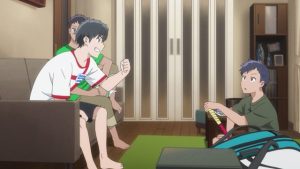
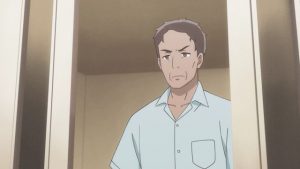
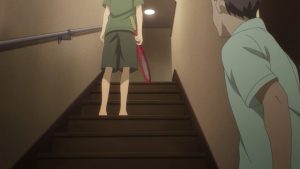
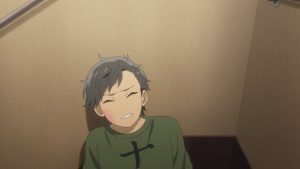
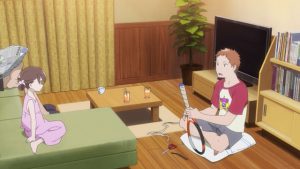
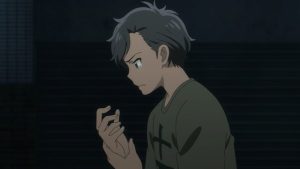
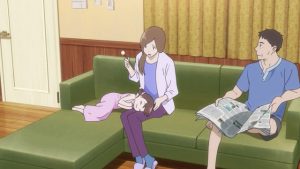
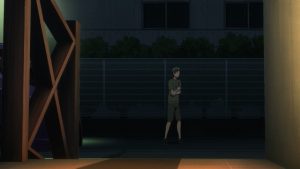
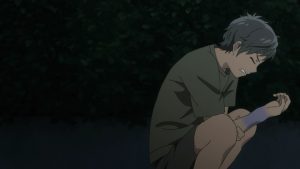
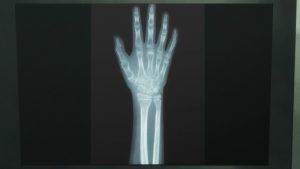
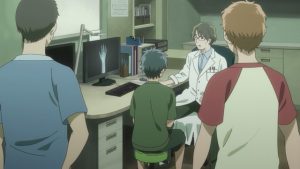
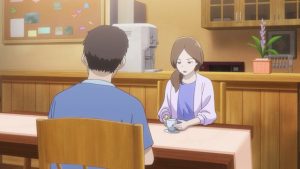
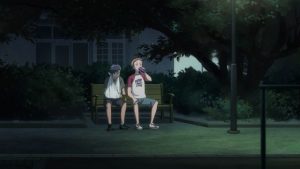
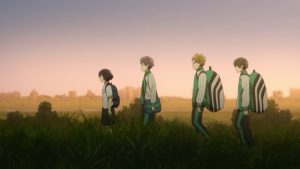
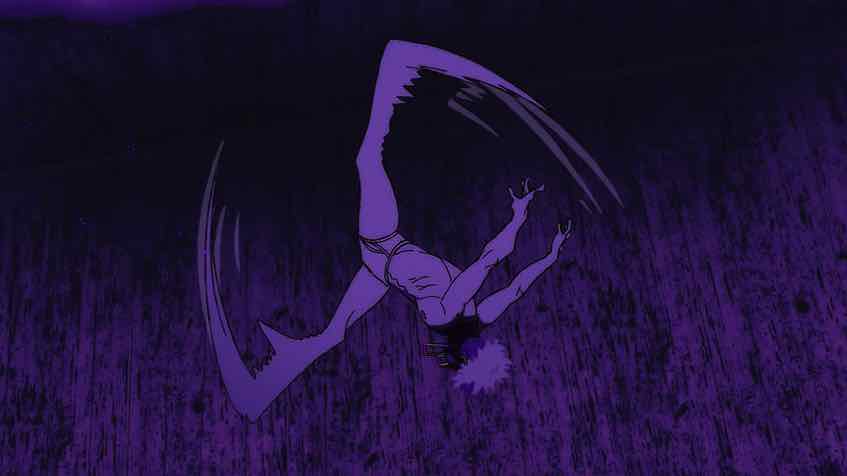
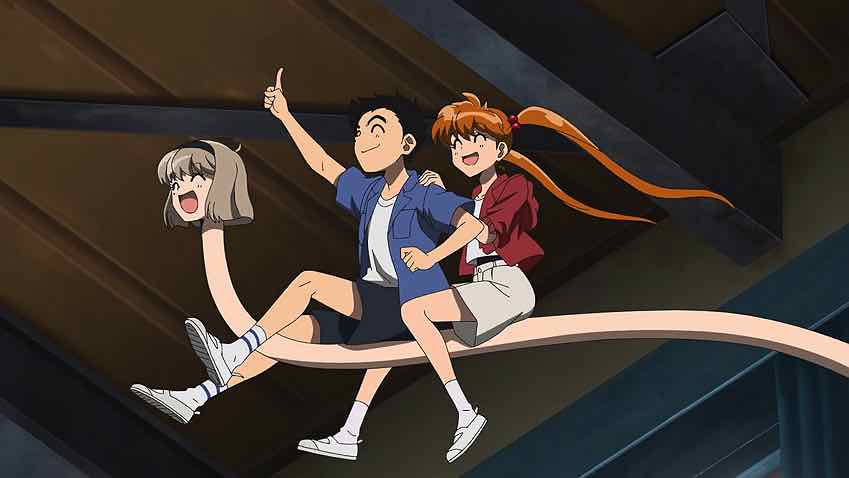
sweejen
December 7, 2019 at 12:57 amThe high incidence of family dysfunction is still (sadly) believable for me. In my middle school friend group, and high school to a lesser extent, the functional and non-abusive households were well in the minority. We were collections of misfits in both cases.
kiwi
December 27, 2019 at 12:18 pmI know I’m late, but I totally agree with you here. I think everyone (to some extent) carries around trauma of some kind, and these kids just happen to be unlucky in that regard. Tbh I find it pretty realistic, just looking at all the struggles that my friends and I support each other through.
Nadavu
December 7, 2019 at 1:44 amOh boy, if ever a series needed to be double cour…
I might add Kanako’s home situation to that list, although it’s certainly on the lighter side. Her mom wants her to give up on drawing — her one passion in life and something she obviously has a talent for —because it’s dumb and not something a respectful person would do. Nice.
At the beginning of the episode, when Shingo’s mom was being all obnoxious, I thought to myself “Boy, this show really makes moms look bad, Maki’s abusive kuzu-jiji notwithstanding,” but dads get about the same treatment. Nao’s dad couldn’t care less about his family, and Shingo’s dad — well, he seems nice enough, but he says nothing when his wife talks crap about his son, wether its to his face or behind his back.
Parents basically come in three flavors in Hoshiai: abusive, neglectful or in denial.
One thing about Shingo’s mom, though. The translation I’ve seen of her first spoken words is “Don’t touch her when you’re still dirty!”, but she’s actually saying “Don’t touch your brother when he’d just arrived (covered with outside-filth, since we’re Japanese and we make such a huge deal of separating the outside from the interior of our rabbit holes). It’s a subtle difference, and she still comes across as nasty, but to me it feels less downright psychotic.
The soft tennis club does indeed function as a support group, and I like that we see here that Maki’s pairings in particular become significant: Tsubasa naturally ends up on Shingo’s doorstep when he’s hurt, and it’s Taiyou who immediately realizes Nao is lying about checking in the infirmary. Speaking of Nao, his (lack of) dancing routine in the ending sequence now seems to mean something much more worrisome than simple absent-mindedness. The boy might have legit mental problems, and might be the most mentally damaged of the bunch (up until know I gave Itsuki that title). I initially thought he was lying to his mom about quitting the club just to get her off his back, but now I think he is genuinely experiencing a cognitive dissonance so strong that he can’t even tell what’s real anymore. And it looks like he’s gonna end up in the infirmary himself if he doesn’t start eating soon.
And regarding your comment last week about how it is unlikely that all these troubled kids would end up in the same after-school club together, I think the very title of the show is a tongue-in-cheek reference to precisely that. 15:love to Kazuki.
I had so many different things to say it all sorta garbled up in my head. Final stray thought: Kanako’s leg-work when she’s scanning the bathroom for An-chan is quite impressive — maybe she should ditch drawing after all and grab a racket herself.
Guardian Enzo
December 7, 2019 at 9:21 amRintarou’s mom at least seems fine. Maybe a bit smothery but it doesn’t seem to be at dysfunction level.
As to what Shingo’s stepmom said to An when he got home, for me at least I got the intended meaning – the subs didn’t seem confusing.
tsirrus
December 7, 2019 at 11:12 amNice comment! I had to re-watch Kanako’s scene in the bathroom and I totally agree! Now I kinda want to see her in a match in the girls’ club…
Loved An’s presence in this episode, with her attitude (genki-happy-go-lucky, not a care in the world, innocent to a T!) creating such a blinding contrast when placed within that group. Seriously worried for her sake there when Nao went all trippy after finding her.
I’m not sure if Shingo’s stepmother dislikes him directly, or rather projects her hate of his mother on him (her comment about his appearance is what triggered my curiosity). I’d definitely like to know the history of that family. It doesn’t change the fact that how she acts is bad though; I’m not being apologetic for her. Shingo definity seems annoyed by it by moment (dinner table), but I’m not sure if it hits him to the core like the other kids’ traumas. If it does he definitely hides it well.
Oh and thanks for the reference Guardian Enzo! Pleasantly surprised 🙂
Guardian Enzo
December 7, 2019 at 11:25 amYou earned it.
For me, whether Shingo’s stepmother dislikes him for him or because he reminds her of his mother is totally irrelevant. She’s still nasty and cruel to him and I don’t give a rat’s ass what her justification is. If he’s strong enough to be able to brush it off good for him, but even if he hides it well you can bet it bothers him.
leongsh
December 7, 2019 at 2:06 pmThere’s definitely a lot that is being piled on in this series. Each of these matters need space and time to breathe, to give each the room to develop. I am concerned as to how much he can wrap up by the end of this cour in 3 episodes. Right now, it feels like a lot of dry tinder and potential for sparks from a number of sources that wil start a conflagration.
Simone
December 7, 2019 at 10:39 pmI am beginning to suspect the stellar alignment the title alludes to isn’t precisely of the auspicious sort.
Guardian Enzo
December 7, 2019 at 11:16 pmExactly.
aggies11
December 11, 2019 at 4:32 amOH wow, so all during this episode my only reaction is “This show should just be called “Parent’s suck! – The Series”. Do any families make it out unscathed in this one? It’s all very believable, and realistic (outside of the fact that so many bad parents and their children all in such close proximity to one another, but that honestly doesn’t require that much suspension of disbelief). It’s just all so damn raw that you can’t help go on the emotional roller coaster with all these kids.
It’s interesting that I find they are doing a decent job not making everything 100% black and white. Outside of Maki’s dad, no one’s parent(s) are portrayed as complete villains. I mean the end results, the pain and suffering, does seem heinous, but I think that’s equal parts the bad parenting decisions and just as much how compelling the characters are that their suffering really hits home if you are emotionally invested in them. But even the “abusive” dad, was a very believable scenario, and it’s just unfortunate how you can see it escalating until disaster. Father son relationships can be tricky, especially when expectation are involved. Even with the best of intentions, wanting “whats best” for your child can quickly go astray when the parent and child don’t have the same answer to that question. Inherent tension, teenage hormonal outbursts, and an over-reaction to perceived “disrespect” can quickly lead to a trip to the emergency room.
If anything this should should be required watching for anyone planning to be a parent or having children. All the many ways you can unintentionally cause your children to suffer.
I am hoping that there might at least be some moral to this story, something other than just pathos, a pay off where at least some of the parents are able to see some of the error of their ways and achieve a bit of their own personal growth? None of this dysfunction, as some call it (if the majority of families are considered dysfunctional, doesn’t that become the new norm and just “functional”?) can of course of course be magically fixed in an instant, or with a single event, but it would be nice to see a little progress in this direction.
After this episode there is no need to dread the post credits scene anymore, I don’t think I’d flinch at Maki’s dad showing up anymore. Everyone’s got it bad (some obviously worse then others). I’m with you on this one that it doesn’t seem unfair or unearned, at this point. But I wonder if there is only so much suffering an audience can take? I need another tennis episode after this one 🙂
Guardian Enzo
December 11, 2019 at 7:39 amThanks for that excellent comment. I would disagree about one thing – I think Nao’s Mother comes across as pretty uniformly bad (she’s my most hated parent in the cast, for the record). Also, how much grey area is there with a dad who rejects his son because of his choice of sport and hits him so hard he falls down the stairs and breaks his wrist?
aggies11
December 14, 2019 at 12:21 amWell I definitely don’t wan to come off as defending the indefensible. These are all reprehensible decisions these parents are making. It’s more that they are kind of understandable. You can see how this might have happened. Pouring boiling water on a child? There are no words. But postpartum psychological effects can be shockingly severe, I have no trouble imagining a parent that genuinely cares for their child, ending up pushed past the psychological breaking point and snapping in such a tragic way. For me all the stories seem to ring true in a very tragic sense, less so in the evil/villainous.
Nao’s mom is a tough one. But I can understand the idea that if a parent feels like they know best, and it’s their job to help make sure their children make the best decisions, ones they won’t regret later or negatively influence their life. It can be a very difficult thing as a parent, letting your children make their own mistakes, ones that you see plainly coming a mile away. Now you can go about that in the absolutely worst way possible (cue. Nao’s mom). But I can imagine that the sentiment isn’t necessarily fueled by malice, just a very, very misplaced sense of wanting to protect your children. Still doesn’t make it any less painful to watch of course.. My reaction tends to be less of “Oh my god, that parent just needs to die!” and more “Oh, if only they could just take more, and better express their feelings towards one another, maybe these parent/child relationships could find some common ground”. But when strong emotions are involved, communication is often not human beings strong point.
The sports dad can also be a thing. Many parents (whether wrongly or rightly) can use sports as a way of connecting and understanding their children. I know a few people personally who had rough relationships with their fathers, but eventually were able to use a shared interest in sports to connect. Would I consider them great parents? Heck no. But you could see how emotionally invested they were in the relationship, and how much those shared moments meant to each of them. So if this dad felt that sports were a key shaping force in his own life and development, and seeing the talent in his son, only to just give that up, I can see that being something he would have a lot of trouble understanding. Add in teenagers not being 100% communicative in their feelings, and there is already going to be some tension. Heck I’ve watched tempers and anger flare up between my own personal family members (thankfully never to anything involving physical violence), even when I knew they both wanted the same things and it was largely emotional fueled miscommunication that was responsible for the hurt feelings and frustration that often accompanies them. I’ve personally been slapped by a parent before (my mother), as a particular angsty teen after saying some reprehensible things. We were both equally quite shocked by it. Looking back, I was being a total degenerate, and while I would say no child ever “deserves” that treatment, I do understand how I could have pushed her past the point of reasonable judgement that let an outburst like that happen. We can laugh about it today, as adults, but at the time it was iincredibly intense.
So it’s an anime, we are of course only seeing small slices of these characters complete lives, who knows exactly what they are feeling and what their true motivations are. I’m just personally impressed that they are not immediately vilified, and the authors are leaving just enough leeway to support different interpretations. Just makes me want to see all these families enter therapy, get some good emotional sharing going on and see what sort of wounds can be healed! Of course maybe I’m just being too hopeful in that.
Either way, I’m enjoying the show, it’s provoked some great food for thought, and I love reading your commentary, and the comments from everyone else on it. Looking forward to it every week.
Guardian Enzo
December 14, 2019 at 9:10 amThere are red lines for me, and an adult man hitting a child is certainly one of them. I don’t believe in any form of corporal punishment so full disclosure on that, but a father like Tsubasa’s can do serious physical harm to a child – even a young teenager. Of course the emotional abuse is terrible, but we saw the physical risks too. There’s no nuance in this for me. And while I certainly get bonding with dads over sports (as I did myself) when those dads can be somewhat emotionally distant, I will never, ever be able to reconcile treating a child badly because he chooses to play the wrong (in your opinion) sport. Sorry – that’s pretty clear-cut to me.
FacelessGrunt
December 12, 2019 at 7:10 amIt only occurred to me today why Tsubasa’s soccer driven dad would give his son the name Tsubasa. The man knows his references, but not how to treat children correctly.
Guardian Enzo
December 12, 2019 at 7:31 amD’oh! Good catch on that. I wonder what he named the older brothers?
Seriously – not even considering the physical abuse, how fucked up a parent do you have to be to base your affection for your children on which sport they’re good at?